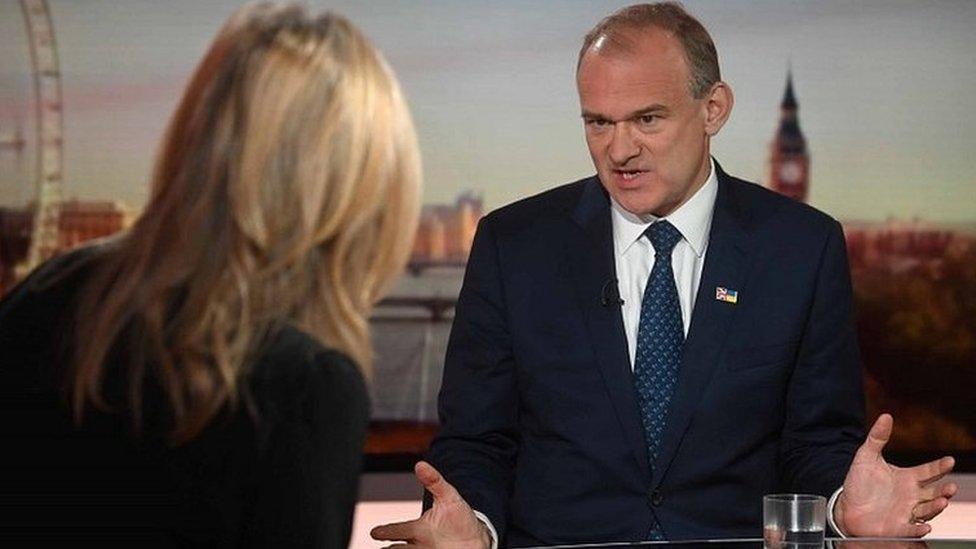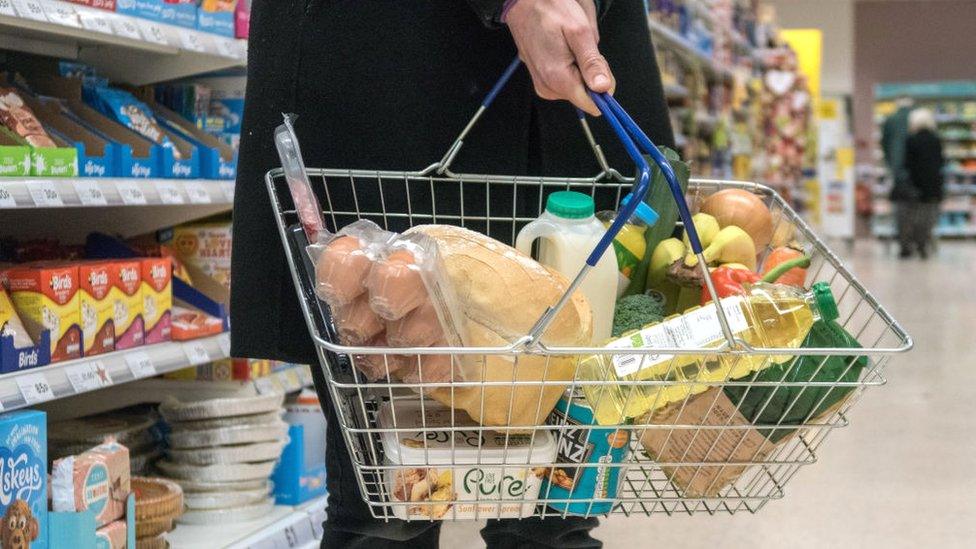Cut VAT in Queen's Speech, Liberal Democrats urge ministers
- Published

Sir Ed Davey said he was annoyed over the government's stance
Liberal Democrat leader Sir Ed Davey has demanded an "emergency" tax cut in next week's Queen's Speech.
He told the BBC that bringing VAT down from 20% to 17.5% as soon as possible would help reduce inflation, which has risen sharply in recent months.
Sir Ed added that he was "really annoyed", saying the Conservatives had "no plans" to assist households.
But Business Secretary Kwasi Kwarteng said the government was giving households "substantial help".
Inflation is at 7%, a 30-year high, driven upwards by surging food and energy prices. It is expected to rise further later this year.
The Queen's Speech - delivered by the monarch but written by the government - sets out plans for the next session of Parliament.
This year's, on 10 May, follows local elections in England, Scotland and Wales this Thursday, when voters in Northern Ireland also choose members of the Northern Ireland Assembly.
Ahead of the last few days of campaigning, Sir Ed told BBC One's Sunday Morning: "The great thing about a VAT cut it is that it would also reduce the level of inflation, so it has a good economic benefit."
He added: "[The government] can do that in two weeks' time and we're really annoyed that the Conservatives have no plans for this."
Sir Ed said that "millions of pensioners and families are really worried about the cost of living", the rise in which is being accelerated by surging food and fuel bills.
He argued that the Lib Dem VAT cut, lasting a year, would give households an extra £600 a year and help struggling smaller businesses.
Sir Ed also called the government's rise in National Insurance payments - to deal with the backlog in NHS waiting lists caused by the pandemic and some of the costs of social care - "unfair", saying it was coming at "the worst possible time".

Food prices are rising sharply
In March's Spring Statement, Chancellor Rishi Sunak raised the point at which people start paying National Insurance, saying it was equivalent to a tax cut of £300 for those on more than £12,570 a year.
Mr Kwarteng told the BBC's Sunday Morning programme that the government had also "protected our consumers from the very worst effects" of energy bill rises through the price cap.
"I think the government's role is to help people with the cost of living and that's what we've done," he said. "That's why the chancellor announced £9.1bn of support at the beginning of the year.
"That's why that was topped by up to £5bn in the Spring Statement, where you saw a reduction in fuel prices."
Last week, Labour leader Sir Keir Starmer urged the government to come up with an emergency Budget to deal with the rise in living costs.
The party has called for a windfall tax on profits made by energy firms, which it says could reduce household energy bills by £600.
Speaking ahead of a campaign visit to Edinburgh on Sunday, SNP leader Nicola Sturgeon urged voters to "shame Boris Johnson into action" on the cost-of-living crisis, as the election campaign entered its closing days.
"As energy prices rise and supermarket costs soar, when will this out-of-touch government finally wake up to the reality in front of them?" she asked.